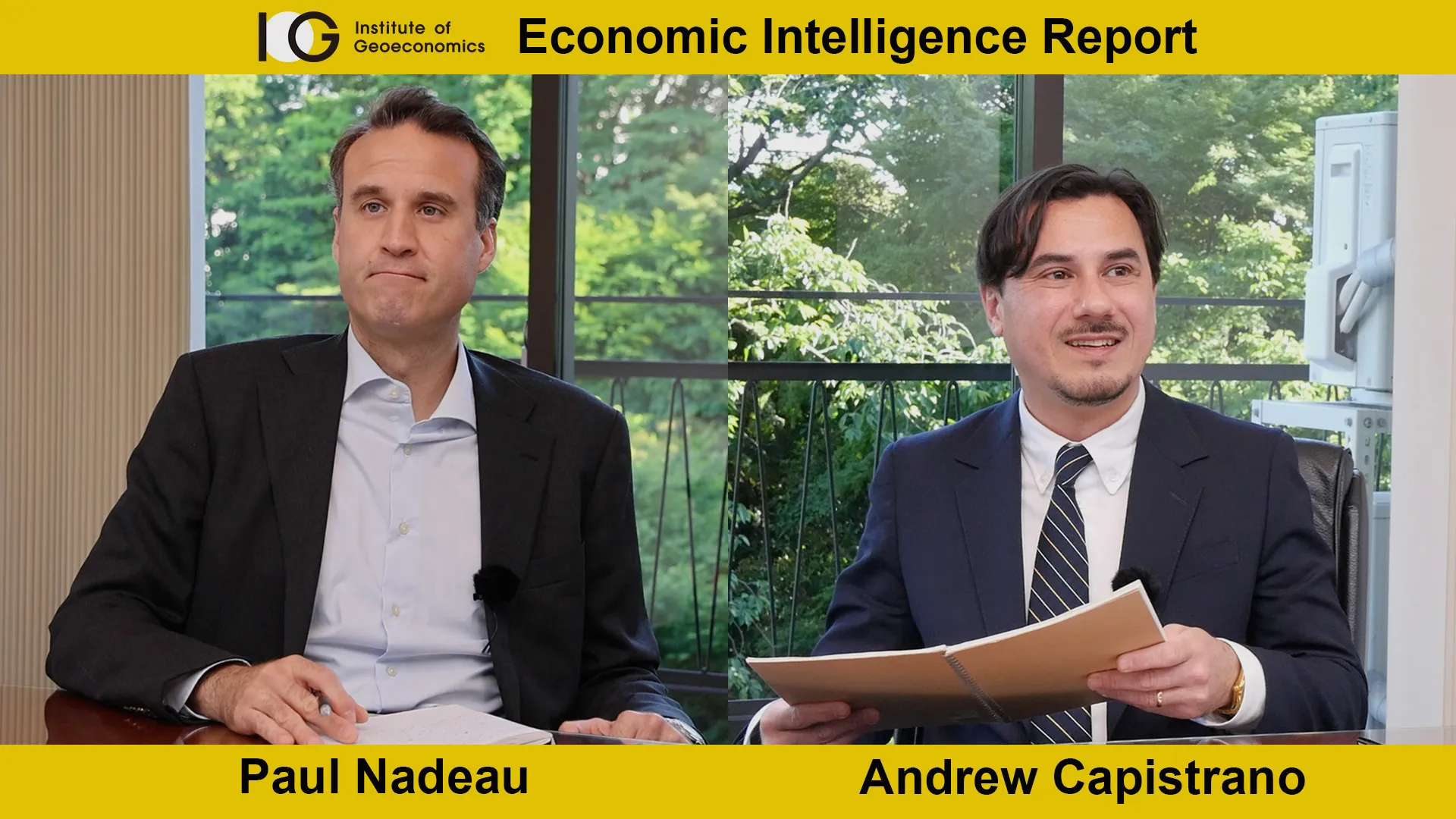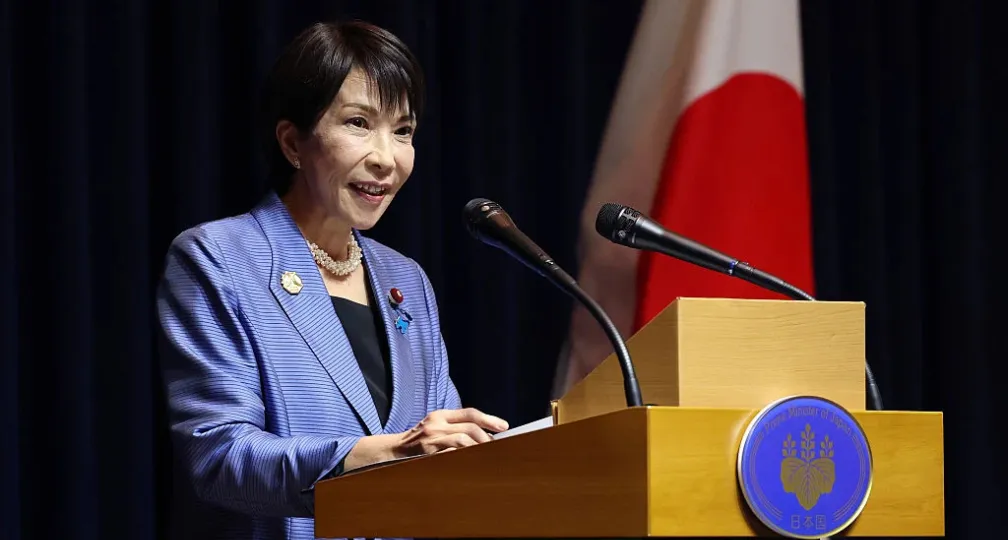IOG Economic Intelligence Report (Vol. 3 No. 6)

The latest regulatory developments on economic security & geoeconomics
Biden Comes Out against Nippon Steel Acquisition: In a statement on Nippon Steel’s proposed acquisition of U.S. Steel, President Joe Biden said that it is “vital” for U.S. Steel to “remain an American steel company that is domestically owned and operated”, the clearest sign of his opposition so far. His statement may have limited practical meaning, since U.S. Steel CEO David B. Burritt expressed confidence that the proposed deal would still go ahead and the acquisition is still subject to review by the Committee on Foreign Investment in the United States which screens foreign direct investment like this for potential national security risks.
New EU Regulations for Digital Services: The European Union implemented new regulations provided in the 2022 Digital Markets Act (DMA) which will impact the European operations of major tech platforms designed to encourage competition. The regulations will allow European users to download iPhone apps from third party stores, alter Google search results to drive traffic to independent sites instead of Google-owned operations, allow users to send messages across different messaging platforms, and more.
FY2025 Budget Proposal Released: On March 13, President Biden released his budget proposal for fiscal year 2025 (FY2025). Included in the proposal is $1.6 billion for artificial intelligence research & development in the National Institutes of Health and $729 million for AI R&D for the National Science Foundation, along with $30 million for the second year of the National AI Research Resource Pilot and $310 million for DARPA’s AI Forward initiative which studies the national security implications of AI. The budget proposal also allocates $20.1 billion in three CHIPS and Science Act authorized agencies: NSF, the Department of Commerce’s National Institute of Standards and Technology (NIST), and the Department of Energy’s (DOE) Office of Science. The President’s budget proposal does not have the power to allocate funding, and Congress will now consider FY25 spending amounts through the congressionally-mandated appropriations process using the President’s budget as a guideline.
USTR Report Released: The Office of the U.S. Trade Representative released the President’s 2024 Trade Policy Agenda and 2023 Annual Report on March 1 and submitted to Congress pursuant to Section 163 of the Trade Act of 1974. The document addresses issues such as ongoing negotiations, supply chain resiliency, workers’ rights and sustainable trade practices, agricultural trade, and more.
Japan’s Ruling Parties Agree to Allow Defense Exports: Japan’s ruling Liberal Democratic Party and its coalition partner Komeito agreed to revise Japan’s defense export guidelines to allow sales of a next-generation fighter now under development with firms from Italy, Japan, and the United Kingdom directly from Japan. The agreement stipulates that sales will be considered on a case-by-case basis and are limited to countries with whom Japan has signed a defense equipment and technology transfer deal and excludes countries currently involved in conflicts. Current rules do not permit jointly developed completed products to be exported to any country beyond countries participating in development (parts, components, and technologies may already be exported to third parties).
TikTok under Fire from Congress: On March 7, the U.S. House of Representatives’s Energy and Commerce Committee unanimously approved a measure that would require Chinese-owned ByteDance to divest its U.S. subsidiary that operates TikTok. The vote follows a classified briefing the Committee received from U.S. intelligence and law enforcement officials that led the Committee to fast-track the measure, with Chairwoman Cathy McMorris Rodgers saying that TikTok CEO Shou Zi Chew had lied to Congress about the extent of his company’s connection to the Chinese government. The measure would give the President the authority to deny TikTok or other social media apps with more than 1 million annual users and owned by “countries of concern” unless they divest their U.S. operations within six months or face a nationwide ban. President Biden has said that he would sign the measure if it is passed by Congress.
Taiwan-U.S. Discussions to Accelerate: U.S. Trade Representative Katherine Tai and her Taiwanese counterpart John Deng agreed to accelerate bilateral discussions on labor, agricultural, and environmental issues on the sidelines of last month’s World Trade Organizations summit in Dubai.
Paper Plates under Investigation: The U.S. International Trade Commission (ITC) voted to allow the Commerce Department to proceed with an investigation that could result in more than $100 million in anti-dumping and countervailing duties on paper plates from China, Thailand, and Vietnam. The Commerce Department is expected to issue its preliminary decision on anti-dumping duties on April 19 and its preliminary decision on countervailing duties on July 3.
Analysis: Japan Moves to Adapt a Security Clearance System
Last month, Japan’s cabinet approved legislation that will institute a security clearance system. Until that point, Japan was the only G7 economy without such a security clearance system or similar system designed to prevent leaks of sensitive information on issues related to economic security. Beyond helping secure sensitive information, the legislation is a key step towards reconciling the growing need for economic security with the reality that economies, and particularly innovation, continues to rely on interconnected relationships.
At its most basic, a security clearance system is designed to ensure that individuals and facilities are qualified to handle information that governments have designated as sensitive, classified, protected, and so on. Government officials and private sector employees may access sensitive information following a background check that investigates their personal history, the possibility of a criminal record, any background in handling sensitive information, and more, and the clearances will be valid for ten years. Companies themselves may be required to secure a clearance as a condition of participating in certain research or procurement projects. In the United States, for example, such information is divided into “confidential”, “secret”, and “top secret” depending on the sensitivity of the information.
In Japan, this process has been governed by the Act on the Protection of Specially Designated Secrets (SDS) of 2013, whereby only individuals who meet the qualification requirements may be designated to handle sensitive information, covering international joint development projects. This includes government personnel, contractors, and prefectural police officers upon completion of a screening process. The SDS already covers import and export of goods and movement of assets relevant to defense, security, and terrorism.
While existing laws to this point, like the SDS Act, cover state secrets and information related to defense, diplomatic activities, counterintelligence, and terrorism, they do not cover the protection of other sensitive information such as those in the field of economic security. The goal of the legislation approved last month is to create an internationally accepted classification system that extends to information relevant to economic security, including sanctions and cyberattacks against critical infrastructure and supply chains, as well as emerging technologies like artificial intelligence and “dual-use” technologies with both civilian and military applications.
The idea is to not only stem the possibility of leaks of critical information but also to improve business opportunities for Japanese firms. A security clearance system like this one would increase number and scope of potential projects that Japanese firms could contribute to, going beyond the defense industry into those related to economic security. Japanese companies have reported that they’ve already lost business opportunities on joint development projects that require security clearances, which is why interest groups like Keidanren and the Japan Association of Corporate Executives has advocated for such a system to be enacted.
This specifically includes information related to the protection of economic foundations, including critical technologies, designating confidential economic security-related information at the “confidential” level.
One challenge is that while private information provided to the government in relation to government work may be designated as classified, the effect of such designation may not extend to the private entity which originally generates such information. In other words, it’s difficult to determine (or justify) the classification of private information unrelated to government R&D or procurement. There’s also the possibility that private contractors may themselves generate sensitive information or intellectual property in the course of their work; generally, research generated resulting from government-contracted work is the IP of the company that generated it. To that end, the United States has implemented procedures to designate that information as confidential via a 2009 Executive Order which requires private contractors to notify the relevant government agency if such a situation arises, at which point the agency will make a decision on the sensitivity of that information. It’s a situation that might be operationally solvable, but should require regular consultation with the private sector as well as reviewing the current government research grant system.
Though issues remain, the new security clearance system is a significant step toward resolving the dilemma of making sure Japanese firms can remain globally competitive while also ensuring security. A broader and more secure system like this one should go a long way towards improving Japan-U.S. cooperation on economic security at a time when the issue is becoming more central to regional politics.
Disclaimer: The views expressed in this IOG Economic Intelligence Report do not necessarily reflect those of the API, the Institute of Geoeconomics (IOG) or any other organizations to which the author belongs.
API/IOG English Newsletter
Edited by Paul Nadeau, the newsletter will monthly keep up to date on geoeconomic agenda, IOG Intelligencce report, geoeconomics briefings, IOG geoeconomic insights, new publications, events, research activities, media coverage, and more.


Visiting Research Fellow
Paul Nadeau is an adjunct assistant professor at Temple University's Japan campus, co-founder & editor of Tokyo Review, and an adjunct fellow with the Scholl Chair in International Business at the Center for Strategic and International Studies (CSIS). He was previously a private secretary with the Japanese Diet and as a member of the foreign affairs and trade staff of Senator Olympia Snowe. He holds a B.A. from the George Washington University, an M.A. in law and diplomacy from the Fletcher School at Tufts University, and a PhD from the University of Tokyo's Graduate School of Public Policy. His research focuses on the intersection of domestic and international politics, with specific focuses on political partisanship and international trade policy. His commentary has appeared on BBC News, New York Times, Nikkei Asian Review, Japan Times, and more.
View Profile-
 Fed-Treasury Coordination as Economic Security Policy2026.02.13
Fed-Treasury Coordination as Economic Security Policy2026.02.13 -
 Challenges for Japan During the U.S.-China ‘Truce’2026.02.12
Challenges for Japan During the U.S.-China ‘Truce’2026.02.12 -
 India and EU Sign Mother of All Deals2026.02.09
India and EU Sign Mother of All Deals2026.02.09 -
 Orbán in the Public Eye: Anti-Ukraine Argument for Delegitimising Brussels2026.02.04
Orbán in the Public Eye: Anti-Ukraine Argument for Delegitimising Brussels2026.02.04 -
 Trump, Takaichi and Japan’s Strategic Crossroads2026.02.03
Trump, Takaichi and Japan’s Strategic Crossroads2026.02.03
 Oil, Debt, and Dollars: The Geoeconomics of Venezuela2026.01.07
Oil, Debt, and Dollars: The Geoeconomics of Venezuela2026.01.07 Orbán in the Public Eye: Anti-Ukraine Argument for Delegitimising Brussels2026.02.04
Orbán in the Public Eye: Anti-Ukraine Argument for Delegitimising Brussels2026.02.04 When Is a Tariff Threat Not a Tariff Threat?2026.01.29
When Is a Tariff Threat Not a Tariff Threat?2026.01.29 It’s Now or Never: India’s Ambitious Reform Push2026.01.09
It’s Now or Never: India’s Ambitious Reform Push2026.01.09 A Looming Crisis in U.S. Science and Technology: The Case of NASA’s Science Budget2025.10.08
A Looming Crisis in U.S. Science and Technology: The Case of NASA’s Science Budget2025.10.08













